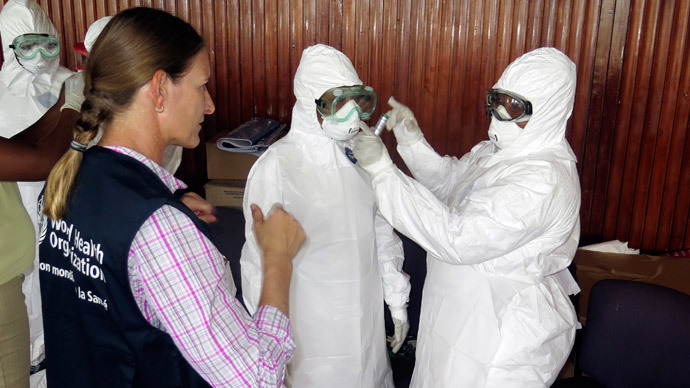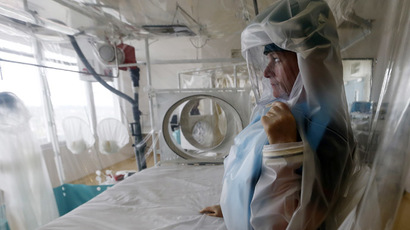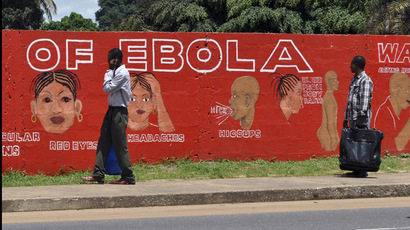WHO issues manual on using Ebola survivors' blood

This week, the World Health Organization (WHO) released a guidance document on the use of convalescent blood for transfusions in patients, admitting that such treatment is “biologically plausible.”
“The concept that this treatment could be efficacious is biologically plausible, as convalescent plasma has been used successfully for the treatment of a variety of infectious agents,” the WHO document says.
READ MORE: US cameraman tests positive for Ebola in Liberia
There is presently no vaccine against the Ebola virus.
As the medical community struggles to come up with an effective
treatment for those infected by the deadly Ebola virus, the
current epidemic of which shows no sign of abating, a new therapy
that relies on the plasma of Ebola survivors is gaining
popularity.
Although still in the experimental stages, researchers believe
that the blood from survivors of the Ebola scourge, which has
killed over 3,000 people in Western Africa, may contain the
antibodies that would allow stricken individuals to recover from
the disease.
According to the manual, collection of the survivors’ blood
should occur in those places where Ebola is being spread, which
means the West African countries of Liberia, Sierra Leone and
Guinea.
“Ebola neutralizing antibodies are expected to be most
effective when CWB/CP is sourced from the areas of ongoing active
Ebola virus transmission,” the WHO guidelines say.
However, exceptions to the rule seem possible, as the manual
whole blood plasma may also be taken from territories “linked
to the current EVD outbreak in West Africa where the outbreak has
come under control.”
READ MORE: Ebola worse than HIV, SARS – UN official
Potential donors of blood must wait at least 28 days from the moment of their release from hospital, it added.

The WHO also recommends the creation of a database listing the patients who have recovered from Ebola and are potential blood donors.
There are some reasons to be optimistic that the blood plasma experiment will merit positive results.
During the 1995 Ebola outbreak in the Democratic Republic of Congo, blood collected from survivors was given to eight patients. Seven of the eight recovered, the WHO noted in a separate report.
Last month, Dr. Kent Brantly, an American who contracted Ebola in Liberia, made a successful recovery after receiving plasma from a boy who survived his bout with Ebola. The blood from Brantly was then administered to his American colleague, Dr. Rick Sacra, who also recuperated from the disease.
However, many experts remain skeptical that the survivors’ blood was responsible, saying that other factors, including enhanced medical treatment, led to the recovery of the patients.
READ MORE: 1 month to stop Ebola before it's 'totally out of control' - global aid NGO
By introducing its safety guidelines into the proper collection
of survivors’ blood plasma, the WHO hopes to offset reports of a
black market for the blood.
“We will certainly bring this matter to the attention of
governments and work with them to stamp out any black market
activity,” Dr. Margaret Chan, director general of the WHO
told a press conference last month.
“The use of convalescent serum has to be done properly and in
evidence-based mechanisms and also a setting that is appropriate
for the use of the convalescent serum,” she said.














